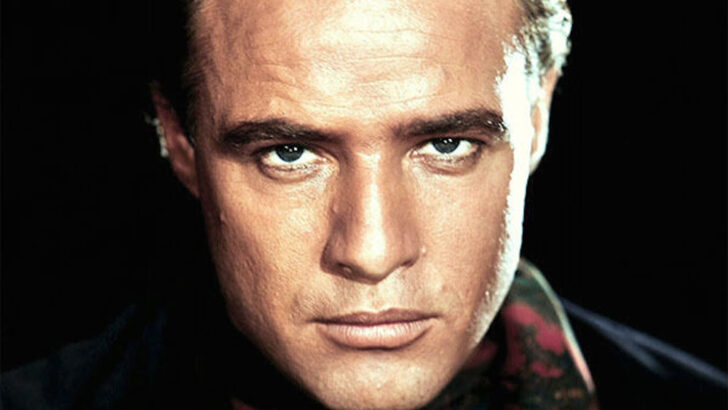Marlon Brando would have been 100 yesterday. Born on April 3, 1924 he was, by fairly common consensus, the greatest actor of his generation. Was he a ‘Method’ actor? This is the school of acting he’s always identified with, focusing as it did on reaching into one’s inner self for inspiration.
He claimed not to be one, but then Jean-Paul Sartre denied being an existentialist too. There are people who will tell you Brando wasn’t just a Method actor but that he was the Method.
When Burt Reynolds visited The Actors Studio in New York one day he said he saw “37 Brandos and 24 James Deans”. Brando thought Dean aped his style. He said of him shortly before he died in 1955: “He’s wearing my last year’s talent and my last year’s wardrobe.”
Career
Brando didn’t attend the Actors Studio much. Many people think he was influenced by Lee Strasberg, its main alumnus, but Brando had little respect for Strasberg or what he represented. “Stella Adler was always my main mentor,” he maintained.
He was electrifying in a raft of Oscar-nominated performances in the 50s, and an Oscar-winning one (On the Waterfront). In the 60s he lost his way, drifting from one aimless project to another. By the end of the decade, after a string of flops, he was labelled ‘box office poison’.
He had a renaissance in the 70s with the double whammy of The Godfather and Last Tango in Paris but afterwards he lost his way again, appearing in high-priced cameo roles for exorbitant sums while denouncing the profession of acting in interviews.
1994 was his annus horribilis. That was the year his son Christian was arrested for allegedly murdering the fiancé of his half-sister Cheyenne. Brando was instrumental in getting the charge reduced to manslaughter. In some quarters this was seen as his greatest performance in years.
It was delivered from a witness box. Tears filled his eyes as he made an impassioned plea for leniency for his dysfunctional son.
He came to Ballycotton in Cork the following year. He was about to play a priest in a film with the working title of Divine Rapture. I made an application to interview him. It would have been the fulfilment of a lifetime dream for me.
Things were looking good but then disaster struck. Money for the film dried up. Brando went back to America without me seeing him. Divine Rapture morphed into a not-so-divine ‘rupture’.
Book
I recently wrote a book about him to commemorate his centenary. Entitled Brando – The Funny Side, it will shortly be published by Bear Manor Media, a prolific company owned by cinephile Ben Ohmart. When people talk about ‘Moody Marlon’ they don’t realise he was a prankster and practical joker all his life.
It’s often been said that the main part that escaped him during his storied career was that of Hamlet. I make the point that Falstaff would have been equally applicable to the chameleon star.


 Aubrey Malone
Aubrey Malone Marlon Brando
Marlon Brando 